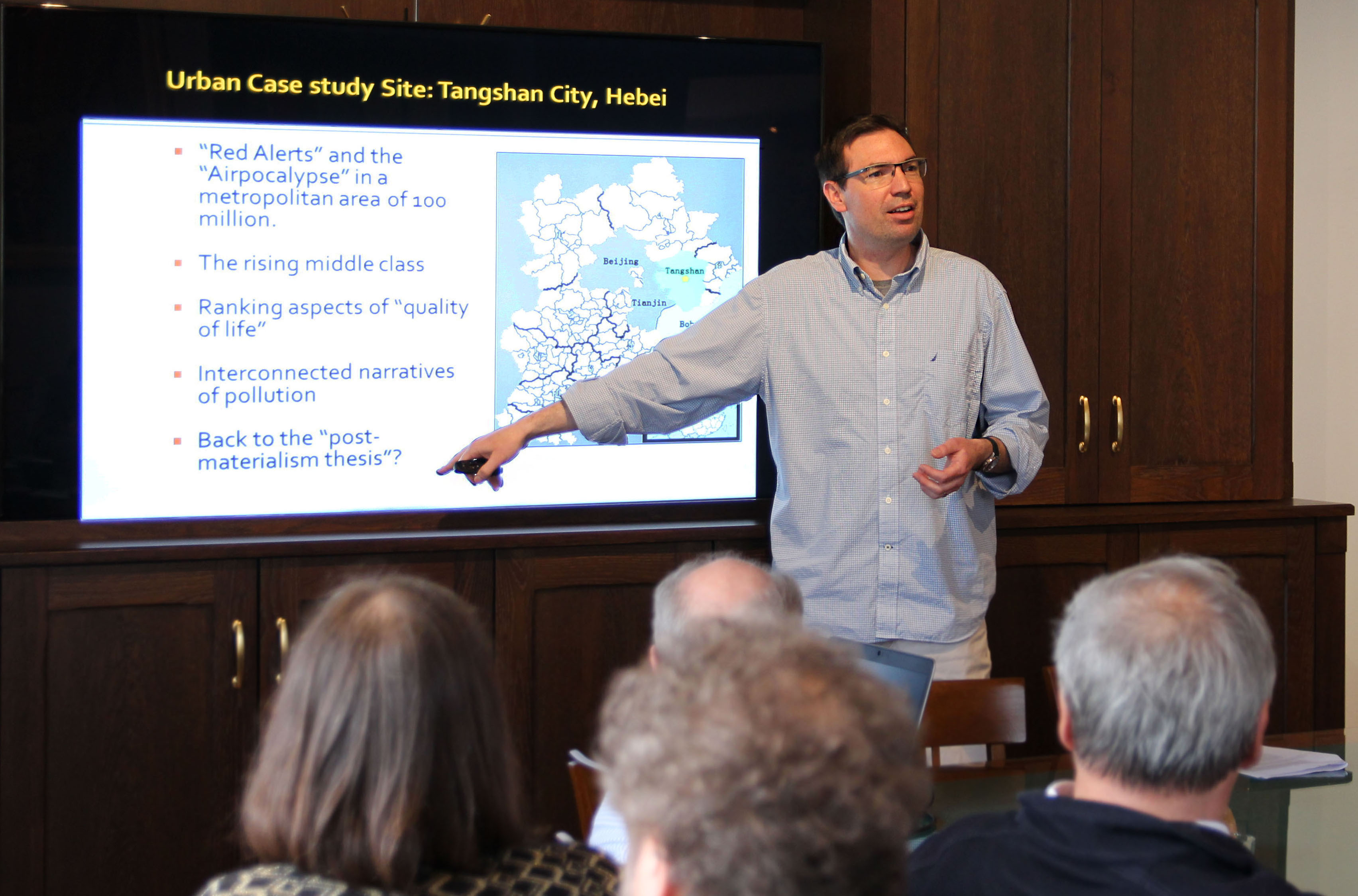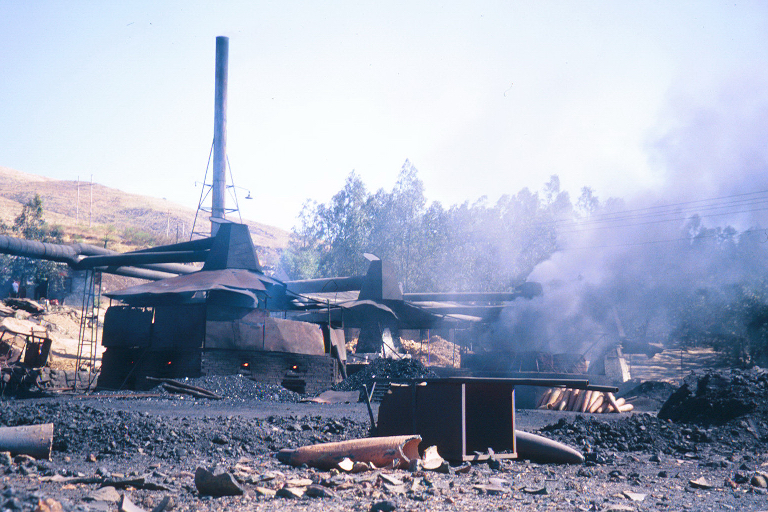Air Pollution: ‘I Haven’t Seen the Stars for Years’
In his talk, Public perceptions of air pollution in China, Tilt asks: ‘How do people see the air pollution problem in China?’ This huge question is Tilt’s part of the CAS project in which he is involved: Airborne: Pollution, climate change, and new visions of sustainability in China.
Tilt starts his talk by reminding the audience of China’s incredible growth rate over recent decades: the country’s GDP has grown at a rate of around ten per cent per year since the early 1980s. The economy has slowed to about six to seven per cent growth in the last year or two, but this is still much higher than in most developed countries (e.g., Western Europe, the United States), he explains:
– So, it is important to think about environmental changes, like pollution, in the context of rapid economic growth.
Tilt’s research method mainly comprises the use of interviews and surveys. When Chinese people are asked about quality of life, they unequivocally answer that life is much better than before:
– On the other side, they meet environmental challenges never seen in human history.

Too poor to be green?
The Mandarin-speaking anthropologist says that one of the great advantages of being part of the CAS project is that he gets to work outside his field, emphasizing that the project is multidisciplinary and multinational.
Read also: Air pollution in China: Poor people likely to be worst off
Tilt explains that the dominant paradigms in current literature on environmental perceptions suggest that a person must have reached a certain level of economic comfort in order to deal with environmental issues: many are perceived to be ‘too poor to be green’, as Juan Martinez-Alier puts it. However, Tilt observes,
– There is little research on whether this applies to China.
Tilt presents two case studies through which he has been researching perceptions of air pollution: these have been carried out in China’s southwestern rural province of Sichuan (see map at the end of this article) and in the urban city of Tangshan in the north. His method mainly comprises interviews, but ten years ago he also decided to monitor the air quality in Sichuan with a pump that would filter PM 2, 10 (small particles that go straight to the lungs):
– The pump stopped working after a day! It was overloaded with particles.

Tilt also carries out standardized surveys, in which people are asked to rank what risks they regard themselves as being exposed to. Tilt observes,
– People in rural areas, especially areas that are quite poor, tend to be concerned about the effects of pollution on their livelihoods.
‘Eating from the mountain’ is a phrase he often heard during his research:
– This phrase is a fairly common way of talking about the environment from a utilitarian perspective. In other words, people want to protect the environment because they rely on it for their food and their income.
Environmental quality ranked above jobs and income
Tangshan is a city of many millions, and it has a rising middle class. During the 2008 Bejing Olympics, factories were sent to this city. Tilt worked together with student, Xiaoyue Li, who is pursuing a PhD in anthropology at Oregon State University, USA.
Interviews and surveys enabled them to understand Tangshan residents’ perceptions of pollution, and to compare their views with those from rural Sichuan.
Li, who is originally from Tangshan, administered the interviews and surveys, and the two of them are publishing their findings in an issue of The China Quarterly, along with other Airborne project members.
Tilt asked inhabitants what quality of life means for them; he explains:
– In the research in Tangshan, we found that perceptions of pollution were connected to other aspects of quality of life, including health, children, family, etcetera ...
Among middle-class urban citizens, it transpired, environmental quality was ranked as more important than jobs and income:
– Most of our study participants belonged to the middle class, and many of them felt that economic development, such as having a good job and making a good salary, was important, but that environmental quality needed to be a higher priority.
He quotes one of his informants as saying, ‘I haven’t seen stars for years—the sky is all grey’.
Tilt concluded his talk with a list of what still needs to be better understood by scholars working on air pollution in China: perceptions and knowledge of pollution, strategies and actions to combat pollution, and the legal and regulatory structures surrounding it.
Karoline Kvellestad Isaksen